4 world champions of public speaking explain how to deliver presentations your audience will love
Leave your audience with a call to action.

Internalize, don't memorize, your speech.
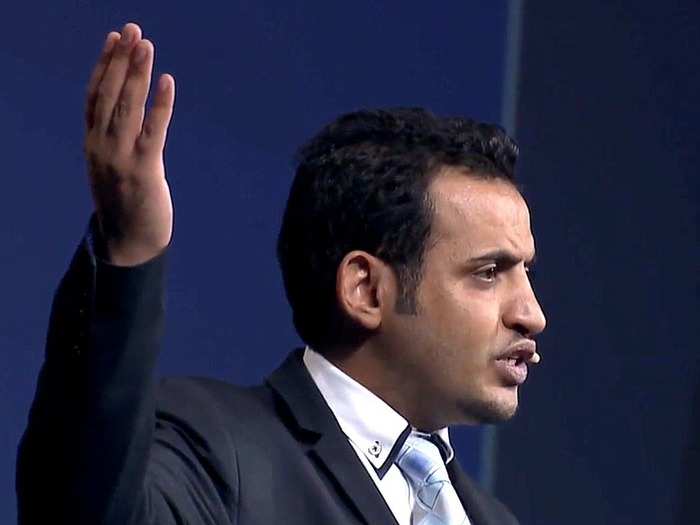
Each of the speakers said that trying to memorize a speech or presentation word-for-word is setting yourself up for failure.
Write down what you would like to say, but practice it enough times that you leave room to adjust your delivery.
Qahtani said that he imagines maps for his speeches, giving himself benchmarks on his way to the end, but allowing himself room to fill in the way to get to each one.
Vasudevan said that you must constantly read your audience and adjust accordingly. In this year's winning speech, he cut a couple jokes from his speech because the energy of the room was low. Similarly, he added some words and phrases he hadn't written in his original draft, for the purpose of bolstering key points that he saw resonated with his audience.
Let your body language flow naturally.
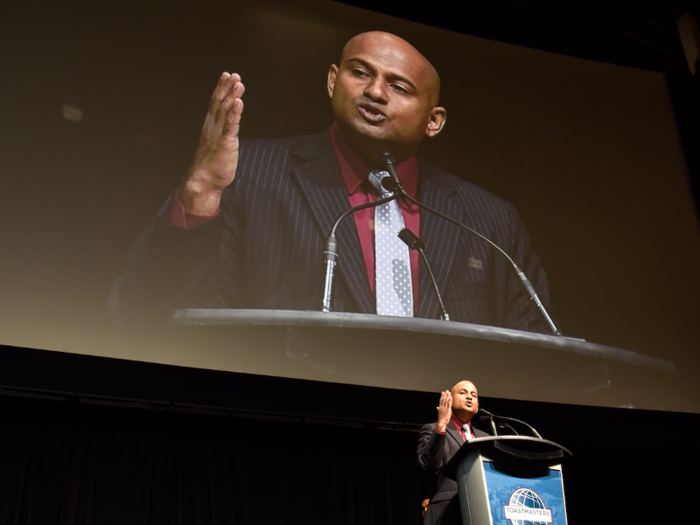
Each of the four speakers said that body language is an aspect of presenting novices struggle with, but only because they overthink it.
Vasudevan said that body language rehearsal should be minimal. The key is to let your body follow your emotions, and for that to work you need to be emotionally invested in what you're saying. "Your body language automatically follows your voice," he said.
As for the few elements you should practice, Tay said that you should keep your gestures around the torso of your body. Moving your hands too close to your face or belt is distracting.
The speakers agreed that appearing natural on stage is the ideal, but recognized that achieving this comfort level comes with practice.
"It took me 10 years to learn to be myself on stage," Hettiarachchi told us, laughing.
Strike an emotional balance.

For the typical speech, carrying yourself with too much earnestness or too much levity can prompt eye rolls in the audience.
Qahtani said that he opened his winning 2015 speech with humor to get the audience laughing and relaxed, but would have fallen into a stand-up act if he didn't transition into moving personal anecdotes. And if he kept his entire speech heavy, his audience would have left feeling sad or bored rather than satisfied.
Each of the speakers agree that when you open a presentation, you need to disarm the audience within the first couple minutes before you can engage them, and humor is one way to do this.
Hettiarachchi said that speeches should be like "roller coasters" that reach peaks and valleys of emotion.
Speak as if you are having a conversation.
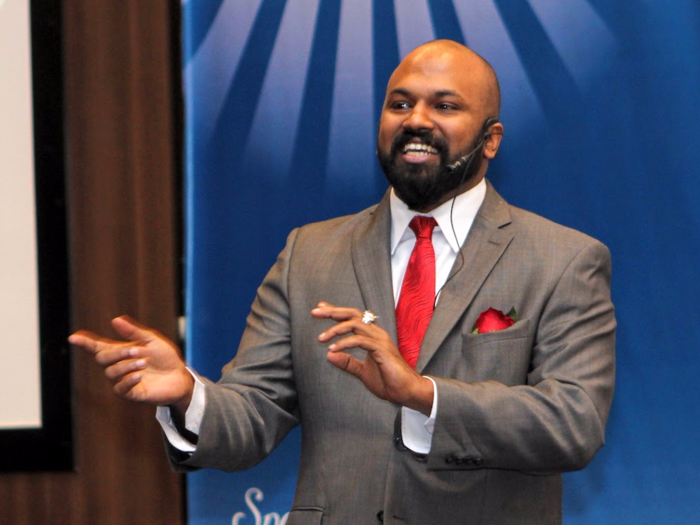
Vasudevan said that for nearly the entirety of his winning speech, "I'm looking at someone and talking to them. It's a huge audience, but I keep picking some random person who's interested in listening to me and I look at the person."
He said that when you are in front of a large audience, you may need to add some drama to your gestures and delivery, but you should still speak as if you were talking to a friend across the table from you. It's about establishing a genuine connection with the audience.
As Hettiarachchi told us, "A speech should be conversational, not theatrical."
Focus on adding value to your audience.
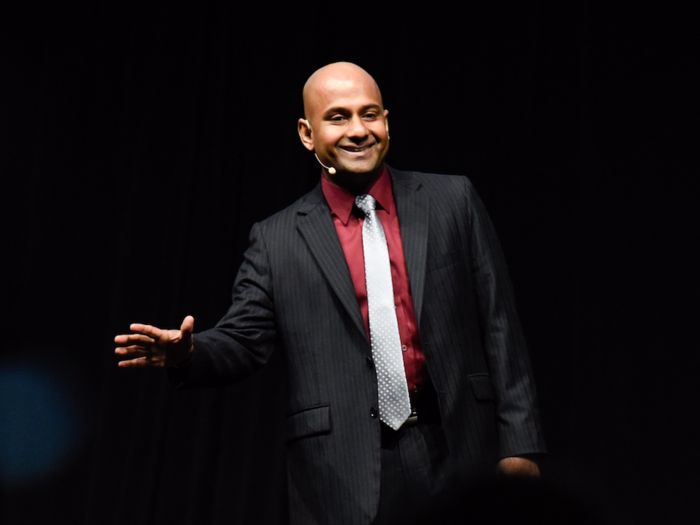
Vasudevan explained that ahead of a presentation, there's an obvious question that easy to overlook: "Why should the audience members even listen to you?"
Whether you're giving a speech or showing PowerPoint slides to your colleagues, you should empathize with your audience. Determine what you can teach them and cut anything that could appear self-indulgent or redundant.
As Vasudevan said, your speech is not about your ego; it's about your message. Make sure that message is worth listening to.
Determine your message and let it define your presentation.
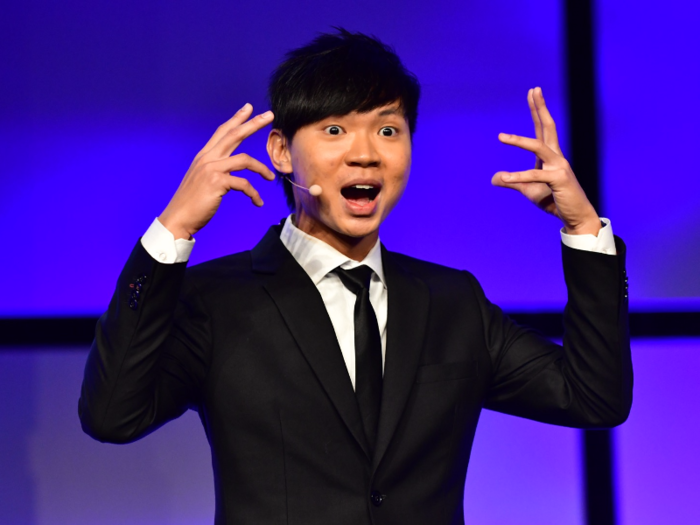
Hettiarachchi said a common mistake beginners make is basing their presentation around a topic rather than a message.
Think of your message as a thesis statement, and make it as clear and concise as possible.
For example, when Tay was crafting his speech last year, he said he initially went into it wanting to tell an amusing story. "That really got my speech message very diluted and disconnected," he said.
His mentor told him he needed to start from the beginning and determine his message before writing another word. He settled on: "We are all our own worst bullies, and the best way to deal with that is by fully acknowledging the presence of negative thoughts in our mind rather than fighting or ignoring them." Tay said that the elements of an engaging speech flowed more naturally after he clarified this.
As Vasudevan told us, when developing a presentation, you should have every line you say pass the test, "Does this further my message?"
Popular Right Now
Popular Keywords
Advertisement